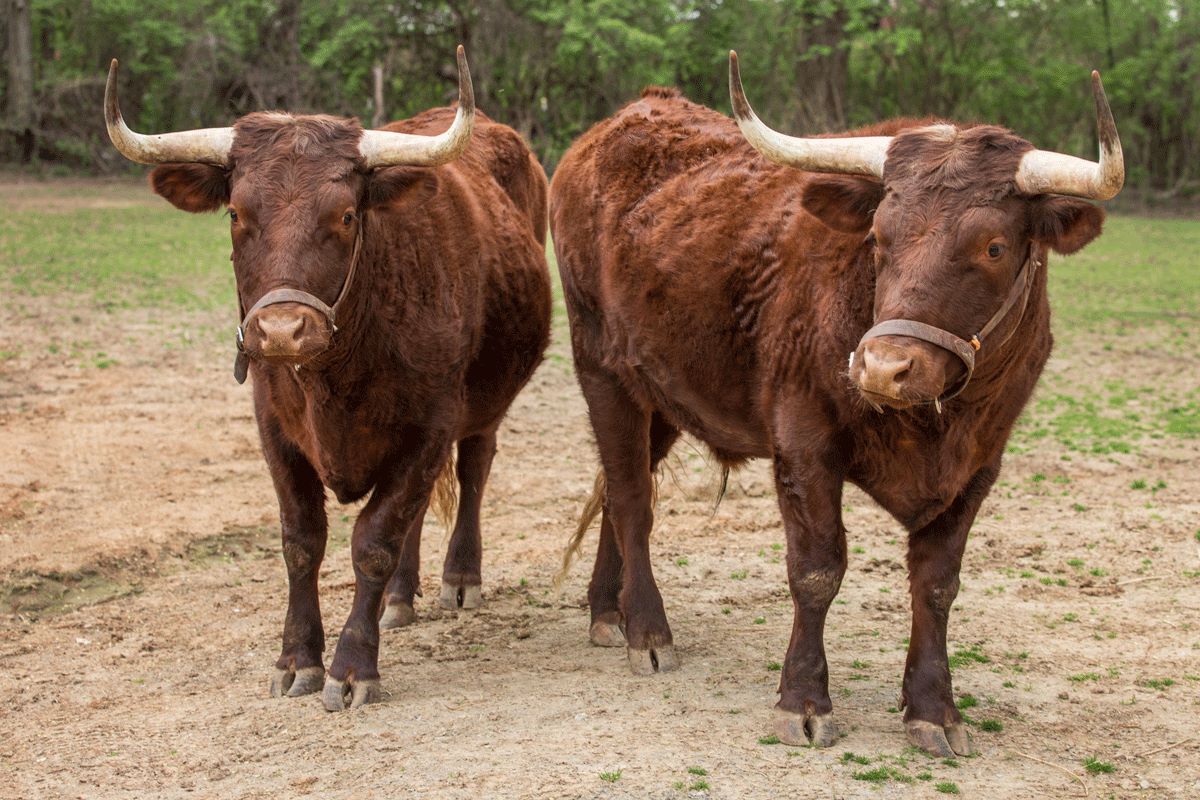
Ever wondered why International Heritage Breeds Week grabs headlines every May? International Heritage Breeds Week is not just any week; it's a celebration that shines a spotlight on the world's endangered livestock and poultry breeds. From May 19th to May 25th, farmers, enthusiasts, and communities worldwide unite to raise awareness about these rare gems of our agricultural heritage. Why does this matter, you ask? Well, preserving these breeds isn't just about keeping history alive; it's about biodiversity, sustainable farming, and food security for future generations. So, let's dive into the heart of this unique week and uncover some fascinating facts that make it so crucial. Ready to be amazed by what you'll learn about these extraordinary animals and their impact on our world?
Key Takeaways:
- International Heritage Breeds Week celebrates rare farm animals and their importance. It's a chance to learn, visit farms, and share on social media to support sustainable farming and biodiversity.
- Heritage breeds face challenges but have a bright future with conservation efforts, community involvement, and global collaboration. Let's work together to preserve these special animals!
What is International Heritage Breeds Week?
International Heritage Breeds Week is an annual event dedicated to raising awareness about heritage livestock and poultry breeds. It takes place from May 19th to May 25th. This week-long celebration aims to highlight the importance of preserving these rare and traditional breeds for future generations. Heritage breeds are known for their unique characteristics, adaptability to local environments, and contributions to biodiversity.
Why Celebrate International Heritage Breeds Week?
-
Preservation of Biodiversity: Heritage breeds represent a crucial component of our agricultural biodiversity. Celebrating this week helps in promoting the conservation of genetic resources that are vital for food security and sustainable agriculture.
-
Cultural Heritage: Many heritage breeds are part of local traditions and history. They carry stories and practices passed down through generations, making them living symbols of cultural heritage.
-
Sustainable Farming Practices: Heritage breeds often require fewer resources and are more adaptable to natural farming methods. Highlighting these breeds encourages more sustainable and environmentally friendly farming practices.
How to Participate in International Heritage Breeds Week
-
Visit Local Farms: One of the best ways to participate is by visiting farms that raise heritage breeds. This provides direct support to farmers and offers a hands-on learning experience about these animals.
-
Educational Events: Many organizations host workshops, webinars, and presentations during this week. Attending these events can deepen your understanding of heritage breeds and their significance.
-
Social Media Advocacy: Sharing information, stories, and pictures of heritage breeds on social media platforms can help spread awareness. Using the hashtag #HeritageBreedsWeek can amplify your message.
Impact of Heritage Breeds on Local Ecosystems
-
Enhanced Ecosystem Services: Heritage breeds often play a key role in maintaining healthy ecosystems. Their grazing patterns can improve soil health and increase biodiversity in their habitats.
-
Resilience to Climate Change: Due to their adaptability, heritage breeds can be more resilient to climate change. This makes them valuable assets in developing sustainable agricultural systems that can withstand environmental challenges.
Challenges Facing Heritage Breeds
-
Competition with Commercial Breeds: Heritage breeds often face competition from more commercially popular breeds that are bred for higher productivity. This can lead to a decline in heritage breed populations.
-
Lack of Awareness: Despite their importance, there is still a significant lack of public awareness about heritage breeds. Increased education and advocacy are necessary to highlight their value.
Future of Heritage Breeds
-
Conservation Efforts: Conservation programs and initiatives are crucial for the survival of heritage breeds. These efforts include gene banks, breeding programs, and support for farmers who raise these animals.
-
Community Involvement: Building strong communities around heritage breeds can foster a sense of responsibility and support for their preservation. This includes farmers, consumers, educators, and policymakers working together.
-
Integration into Modern Agriculture: Finding ways to integrate heritage breeds into modern agricultural practices can ensure their continued relevance and survival. This involves balancing productivity with sustainability and biodiversity.
-
Global Collaboration: International cooperation is essential for the preservation of heritage breeds. Sharing knowledge, resources, and best practices across borders can help protect these breeds for future generations.
A Final Nod to Heritage Breeds
As we reach the end of our exploration into International Heritage Breeds Week, let's not forget what's at stake. These animals aren't just relics of the past; they're living links to our history, culture, and biodiversity. Celebrating them from May 19th to May 25th every year isn't just about acknowledging their existence; it's about taking active steps to ensure their survival. Whether you're a farmer, a hobbyist, or simply someone who appreciates the richness of our agricultural heritage, there's a role for everyone to play. Supporting local farms, choosing heritage products, or even spreading the word, can make a big difference. Let's keep the legacy of these remarkable breeds alive for generations to come. After all, preserving heritage breeds isn't just about honoring history—it's about building a sustainable future.
Frequently Asked Questions
Was this page helpful?
Our commitment to delivering trustworthy and engaging content is at the heart of what we do. Each fact on our site is contributed by real users like you, bringing a wealth of diverse insights and information. To ensure the highest standards of accuracy and reliability, our dedicated editors meticulously review each submission. This process guarantees that the facts we share are not only fascinating but also credible. Trust in our commitment to quality and authenticity as you explore and learn with us.
